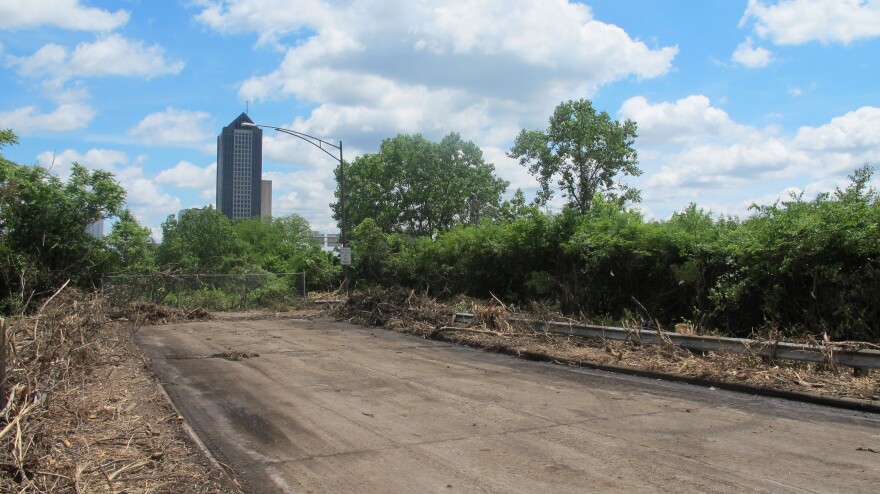Shelters and advocacy organizations are questioning whether cities may criminalize homelessness after a U.S. Supreme Court ruling last week.
The Grants Pass vs. Johnson ruling upheld an Oregon city's ban against homeless people camping in public spaces. The decision essentially gives cities and states more latitude to punish people for sleeping in public.
The case is the high court’s most significant ruling on the issue in decades and comes as a rising number of people in the U.S. are without a permanent place to live.
Many groups like the Community Shelter Board are left to reckon with what this ruling could mean for Ohio's homeless population. Cities in the state enforcing rules barring homeless people from camping is not unheard of.
Community Shelter Board President and CEO Shannon Isom said many of Franklin County's communities are more benevolent and philanthropic in nature, but cities criminalizing homelessness is not out of the question.
Isom said she won't allow Franklin County and its cities to start criminalizing homelessness. "Nope. No city on our watch," Isom said.
Isom said the Grants Pass ruling was disturbing, but something she and others that work with homeless people were expecting.
Isom argued the ruling criminalizes sleeping. "If you must shut your eyes, then that in itself is criminal. Oh my goodness, how did we get here," Isom said.
Isom said the region's leaders ought to invest in social services as a solution to homelessness. She said many in Franklin County already take this approach and other cities who don't should build up infrastructure to support their most vulnerable populations.
"Thankfully, we live in a community that is not only not close to criminalizing homelessness, but I think would actually recoil at the conversations," Isom said.
Amy Riegel is the executive director of the Coalition on Homelessness and Housing in Ohio. Riegel said her organization was one of many who submitted briefs to SCOTUS on this case arguing against such laws.
Riegel said she understood Justice Neil Gorsuch's majority opinion that argued homelessness is a complex issues, but would better be regulated at the state and local level.
“Homelessness is complex. Its causes are many, so maybe the public policy responses required to address it,” Gorsuch wrote. “A handful of federal judges cannot begin to match the collective wisdom the American people possess in deciding how best to handle a pressing social question like homelessness.”
Riegel disagreed with the idea that the federal courts can't step in and strike down a city's laws criminalizing homelessness.
"The fact that the court said that humanity is not something universal across the United States, but community to community, you can be treated different, and some communities may value you more than others, I think is a failure on the court's part," Riegel said.
Riegel said she agreed with Justice Sonia Sotomayor, who dissented in the court's 6-3 decision. Sototmayor said, "Sleep is a biological necessity, not a crime."
Riegel said she is worried that more cities will move to criminalize homelessness in some way after this ruling.
According to Riegel, a small number of Ohio cities have tried in the past to criminalize homelessness, but there was a lot of pushback and those efforts were curtailed. Riegel declined to name the cities that previously tried to do so.
"One of the reasons that I believe that increase will happen is because just like the west coast cities, their idea is not to solve homelessness. Their approach is not to address the issue at hand, but it's really just an approach to push people to somewhere else, push people to the bigger city," Riegel said.
Riegel said if these efforts are revived, it is likely to happen in small towns or suburbs.
These practices have never and will never end homelessness - they perpetuate it.
— Shayla Favor (@sdfavor) June 28, 2024
We've witnessed firsthand how a tight housing market and laws that favor property owners have allowed tenants to lose their homes. 2/5
Columbus City Councilmember Shayla Favor posted a reaction to the ruling on X, formerly known as Twitter, on Friday, calling the ruling "untenable" and criticized the court.
"These practices have never and will never end homelessness - they perpetuate it," Favor wrote.


